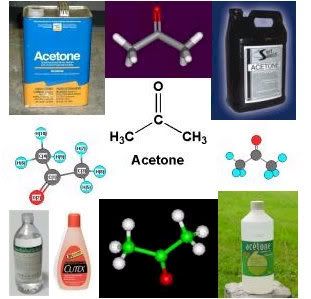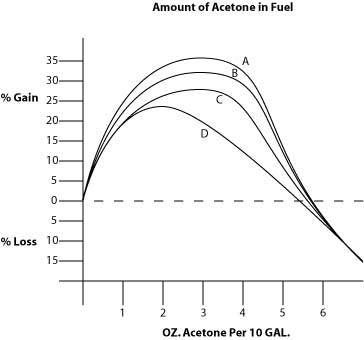Metal Gear & Mechwarrior are here
----------------- Bulletin Message -----------------
From: The Man Common
Date: May 3, 2008 4:25 PM
America's Chemically Modified 21st Century Soldiers
By Clayton Dach
Go To OriginalAmphetamines and the military first met somewhere in the fog of WWII, when axis and allied forces alike were issued speed tablets to head off fatigue on the battlefield.
More than 60 years later, the U.S. Air Force still doles out dextro-amphetamine to pilots whose duties do not afford them the luxury of sleep.
Through it all, it seems, the human body and its fleshy weaknesses keep getting in the way of warfare. Just as in the health clinics of the nation, the first waypoint in the military effort to redress these foibles is a pharmaceutical one. The catch is, we're really not that great at it. In the case of speed, the U.S. Drug Enforcement Agency itself notes a few unwanted snags like addiction, anxiety, aggression, paranoia and hallucinations. For side-effects like insomnia, the Air Force issues "no-go" pills like temazepam alongside its "go" pills. Psychosis, though, is a wee bit trickier.
Far from getting discouraged, the working consensus appears to be that we just haven't gotten the drugs right yet. In recent years, the U.S., the UK and France -- among others -- have reportedly been funding investigations into a new line-up of military performance enhancers. The bulk of these drugs are already familiar to us from the lists of substances banned by international sporting bodies, including the stimulant ephedrine, non-stimulant "wakefulness promoting agents" like modafinil (aka Provigil) and erythropoietin, used to improve endurance by boosting the production of red blood cells.
As the chemical interventions grow bolder and more sophisticated, we should not be surprised that some are beginning to cast their eyes beyond droopy eyelids and sore muscles. Chief among the new horizons is the alluring notion of psychological prophylactics: drugs used to pre-empt the often nasty effects of combat stress on soldiers, particularly that perennial veteran's bugaboo known as post-traumatic stress disorder syndrome. In the U.S., where roughly two-fifths of troops returning from combat deployments are presenting serious mental health problems, PTSD has gone political in form of the Psychological Kevlar Act, which would direct the Secretary of Defense to implement "preventive and early-intervention measures" to protect troops against "stress-related psychopathologies.
"
Proponents of the "Psychological Kevlar" approach to PTSD may have found a silver bullet in the form of propranolol, a 50-year-old beta-blocker used on-label to treat high blood pressure, and off-label as a stress-buster for performers and exam-takers. Ongoing psychiatric research has intriguingly suggested that a dose of propranolol, taken soon after a harrowing event, can suppress the victim's stress response and effectively block the physiological process that makes certain memories intense and intrusive. That the drug is cheap and well tolerated is icing on the cake.
Propranolol has already been dubbed the "mourning after pill," largely by those who argue that its military use amounts to medicating away pangs of conscience. For the time being, though, we can set aside our dystopian visions of zombies with guns, since the tranquilizing effects of beta-blockers are unlikely to permit their widespread use on the battlefield. But pharmacology moves more swiftly with each passing year -- especially when helped along by defense-research dollars -- and we may need to revive those visions sooner than we think.
The Mediated Soldier
In the new model army, brute force and viscera are out. Cutting edge gadgetry, omniscient surveillance and precision long-distance termination is in. What motivates it all is the type of war we fear we'll be fighting.
On this, the strategists have spoken: with Iraq and Afghanistan as the testing grounds, the conflicts of the future will be guerrilla wars, open-ended, with no battle lines, no rules of engagement and ambivalent or openly hostile civilian populations in which any man, woman or child can turn combatant.
In breeding a future soldier for these future wars, we will inevitably leave behind the mere rectification of human weakness and enter into the realm of the superhuman. Glimpses of this realm have already become commonplace in the form of ceramic-Kevlar body armor and night-vision goggles -- wizardry that transforms squishy pink men into bullet-proof creatures of the night.
Such magic will continue apace under the auspices of dozens of military development initiatives across the globe, creating a species known variously as the Future Force Warrior by the U.S., FIST by the British Army, Félin by the French. All are merely the human components of broader visionary projects for what has been called "the army after next," the most noteworthy of which being the U.S. Army's Future Combat Systems. With a budget clocking in at $160 billion or so, FCS is not just one of history's most costly weapons programs; it is an all-encompassing modernization program, one that will usher in a total re-imagining of the armed forces. What FCS and its kin have imagined for soldiers is a battlefield experience increasingly mediated by technology, insulated in a cocoon of "force multipliers" -- military parlance for anything that allows you to accomplish more with fewer personnel. In concrete terms, that translates into an array of tools designed to enhance lethality and survivability: next-generation sidearms; headsets that provide live command and control, detailed geographic data and the ability to fire around corners; smart suits equipped with ultralight nanotech armor, micro-climate conditioning, real-time health monitoring and even automated medical care like CPR and drug delivery. Also on the docket are robotic exoskeletons that allow the soldiers wearing them to carry hundreds of pounds -- even while running -- without breaking a sweat, as well as handheld imaging equipment that grants the ability to see targets through walls.
None of these are sci-fi pipe dreams. The DARPA-developed Radar Scope is already in limited deployment, detecting human breathing through a foot of concrete on two AA batteries. Utah-based robotics company Sarcos is expected to deliver its prototype exoskeletons to the Army this year, at roughly the same time that many of the other Future Force Warrior components begin field testing. Full-scale production of a number of the systems is scheduled for early in the next decade.
The Absent Soldier
It is tempting to say that military technology is steadily transforming war into a video game. Yet there's a strange irony in the works: as the games claw themselves even closer to the look and feel of real, down-and-dirty warfare, real warfare is fluttering away into strategic and technological abstraction, effectively taking a step back from its own reality.
For all the PlayStation sexiness of the ultra lethal, force-multiplied warrior, the true fate of the in-the-flesh soldier is to vanish into the abstraction.
The explicit purpose of Future Combat Systems is to progressively supplement, to the point of ultimately displacing, the human soldier with a whole array of automated, autonomous and remote technologies -- things like unmanned surveillance drones, long-range and non-line-of-sight precision-guided munitions, and unmanned air and ground combat vehicles. Though the latter group may never look anything like Schwarzenegger minus skin, make no mistake that what we are talking about here is weaponized robots.
An oft-quoted U.S. Joint Forces Command study from 2003 (rather candidly titled Unmanned Effects: Taking the Human Out of the Loop) predicted that autonomous, networked robots -- faster and more lethal than human combatants -- could become the norm by 2025. That may prove overly confident, but a congressional mandate has already called for one-third of all U.S. military land vehicles to be unmanned by 2015, increasing to two-thirds by 2025.
If the idea of autonomous, homicidal robots dashing into troubled Third-World slums sends a major chill down your spine, you're certainly not alone. Well aware of the nightmarish optics, defense contractors and military brass alike have been presenting a united front, noting that this is about moving soldiers out of harm's way, not about deleting humans from the "kill chain" entirely.
While there is little doubt that protecting soldiers is the central motivation, shifting troops into a distant pixel-pushing role also performs a secondary purpose: it neatly removes obstacles for those looking to wage war overseas while expending as little of their domestic political capital as possible. You can call it a by-product, or you can call it an ulterior motive, depending upon how dismal your outlook is.
Whatever the reasons, as we lose ourselves in the lovely fantasy of sidestepping the maimed veterans and crying widows, we could be walking right into an even nastier pile of shit. During the bombing campaign that accompanied the 2003 coalition invasion of Iraq, satellite-guided munitions caused scores of accidental civilian deaths. If these people had perished at the barrel of coalition rifles, their deaths would have been called massacres; as it stands, they are mere technical glitches and failures of intelligence.
The moral here is straightforward: once the human presence in the kill chain is diluted, so too is accountability. The future's soldier could be one surrounded by an inveigling haze of pharmaceuticals, decision-making robots, errant bombs and faulty surveillance data; the only thing to emerge from this haze will be an exhilarating sense of our own guiltlessness. Alas, the populations against which we use our fancy toys are unlikely to share in the feeling.
Labels: The Truth Is Out There





